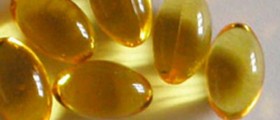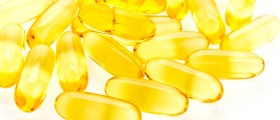
Perilla oil is a great source of omega-3 essential fatty acids, from which many of its health benefits are derived.
Perilla oil is extracted from the plant called Perilla frutescens. This member of the mint family is also called purple mint, Chinese basil, shiso and wild coleus. The oil is extracted from the plant via steam distillation. The main compound in perilla, the one that gives the plant its characteristic fragrance, is called perillaldehyde.
Benefits of perilla oil
Perilla oil has many uses. In some countries it is used for cooking, and it can also be used as a drying agent and as a fuel. This oil offers many great health benefits.
The oil extracted from perilla is rich in alpha-linoleic acid or ALA. When perilla oil is consumed, the ALA converts in the body into two important omega-3 fatty acids, EPA and DHA.
Thanks to this property, perilla oil is very beneficial for a number of conditions, including rheumatoid arthritis, colitis, atherosclerosis, and many auto-immune diseases. It reduces the risk of colon and breast cancer and improves cardiovascular health.
Perilla oil inhibits heart arrhythmia and prevents blood clotting. It improves memory and concentration, protects the neurological system and prevents some of the mental problems and abnormalities.
This oil has anti-inflammatory properties and alleviates allergies. It regulates the cholesterol levels in blood and it even fights acne.
Because it is so rich in omega-3 fatty acids, perilla oil protects the body from damage and oxidative stress and delays aging. It is very beneficial for the skin, it makes it smoother, more toned and younger looking.
Perilla oil dosage and side effects
Perilla oil dosage depends on several factors, including overall health, possible chronic conditions and age. However, for obtaining the maximum of perilla oil benefits, it is recommended to take 6.000 milligrams of this oil per day. That amount of oil contains 3,3 grams of omega-3 fatty acids.
Because it acts as a blood thinner, perilla oil is not suitable for people who are already on blood thinners and anticoagulants like warfarin and Aspirin.
Some people may have an allergic reaction to perilla oil, in form of rash and itching of the skin.
Perilla oil is not recommended for pregnant and nursing women.
It is important to understand that, just like any other supplement, perilla oil should be taken together with other important nutrients, in order to assure adequate metabolic regulation in the body. However, since dietary fibers can absorb all fats, both good and bad, it is better to take perilla oil at a different time than fiber-rich foods.

















Your thoughts on this
Loading...